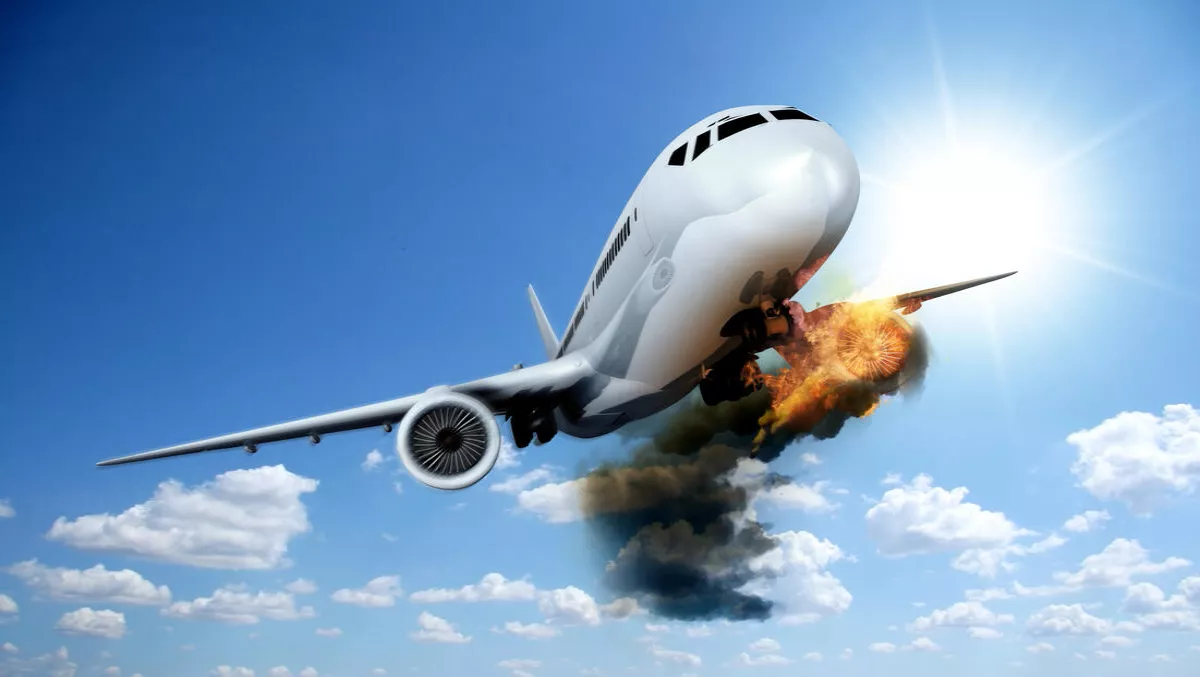
The Samsung Note 7 joins the hover board to be banned by Air New Zealand, an issue that's the direct result of battery safety issues - with some Note 7s even catching fire.
The move comes after an FAA advisory recommended airlines ban passengers from packing Note 7's in checked luggage. Several airlines (Qantas, Jetstar, Virgin Australia, Tiger Airways) have banned passengers from using or charging Note 7 phones in-flight.
Air New Zealand has followed suit and Note 7's can no longer be used or charged aboard any Air New Zealand flights. They are also not allowed to be packed in checked luggage.
Battery issues saw 2.5 million Note 7 phones recalled worldwide with 35 incidents of fires having been reported so far.
The Note 7's batteries use lithium, the third element on the period table. Lithium is a metal that has the unfortunate property of igniting when exposed to oxygen or water.
Lithium's potential as an energy source has been known for some time but its volatile nature made it too hazardous to use. That changed when Sony developed safe lithium batteries by keeping lithium suspended in a conductive gel.
Lithium batteries have become the energy storage medium of choice for a huge range of gadgets including hybrid vehicles. Lithium batteries have built-in safety measures, but quality control errors can lead to faulty batteries and igniting gadgets.
Several issues could be to blame for the reported instances of Note 7's catching fire. Faulty safety circuitry can allow lithium ion batteries to overcharge. Most lithium batteries will stop charging once full and faulty batteries can overcharge with pyrotechnic consequences. In overcharged lithium batteries, lithium ions accumulate as metallic lithium.
Because the battery heats up when overcharged, oxygen bubbles form within the gel. Oxygen reacts with metallic lithium and things begin to heat up. Faulty lithium ion batteries can also over discharge, refusing to deactivate when flat...This can also have fiery consequences.
There's no official word on the nature of the Note 7's battery issues, but it's good to see Air NZ moving on the issue. That said, I do have a burning question (bad pun!): How will Air NZ enforce a Note 7 ban?
Will their check in staff frisk customers for Note 7's? Will they operate a TSA-like line of misery? I can see a body scanner, tuned to detect rogue Note 7‘s being added to our travelling enjoyment.
Kidding aside, the issue poses a real danger to air travellers. The FAA's concerns revolve around faulty batteries overheating and causing an in-flight fire. Lithium ion batteries are everywhere. They're in laptops, phones, noise cancelling headphones, smart watches - the list is almost endless.
While a battery fire in an aircrafts cabin can be extinguished, a cargo hold fire is a different story. Flames from a burning battery would spread fast. Other flammable cargo would fuel the fire, which could overpower existing fire-suppression systems. Keeping a plane aloft under such circumstances would be next to impossible.